|
|
|||||
African musicians play an important cultural and political role: They provide commentary on economic and social conditions and help hold public leaders accountable. They foster pan-Africanism through cross-country collaborations and expand African countries’ cultural influence. To honour their impact, today’s edition will be told partly through the lyrics of African artists. 🎧 |
|||||
|
|
|||||
Top news“Hello Africa! Tell me how you’re doin’” (by Dr. Alban): Before we dive into the news (and lyrics) of the week: Just how important, and profitable, is African music? With its ever-growing popularity on the world stage, music from the African continent is becoming the cornerstone of Africa’s soft power. African artists continue to illustrate that African countries have more to export than just natural resources. This cultural impact is yet to translate into economic impact: music contributes just 0.1% of Africa’s GDP. But that could change: revenue from digital music streaming in Africa could grow to $500 million annually by 2025, up from $100 million in 2017, according to some estimates. “Just remember that the king inna the kingdom” (by Tiwa Savage): Nigerian singer Tiwa Savage and South African opera singer Pretty Yende were amongst the performers at the coronation of King Charles III last weekend. A third African star also was present: the “Star of Africa” diamond in the king’s sceptre. Colonial Great Britain stole the diamond from South Africa, a fact the South African political party Economic Freedom Fighters was quick to point out, demanding the diamond be returned. “No be there dem dey oh United Nations” (by Fela Kuti): Speaking of institutions that need to reflect on their past and be more inclusive: the UN Security Council and G20 continue dragging their feet on giving Africa a greater voice. At least the latter is (slowly) gaining momentum: German Chancellor Olaf Scholz threw his support behind the AU getting a seat in the G20, joining France and the US. And then there are the IMF and World Bank: The US (with 330 million people) controls roughly 16% of the voting power at both institutions. Meanwhile Africa’s 54 countries, with a combined 1.4 billion people, collectively have only a 7% voting share. That injustice echoes Fela Kuti’s pointed critique over three decades ago: “Dis ‘united’ United Nations, one veto vote is equal to 92 (or more, or more), what kind sense be dat? Na animal sense.” “You suppose to know how the thing go” (by Ruger): Lawyers representing Nigerian opposition parties made their opening statements in court as part of the legal challenge against the election win of President-elect Bola Tinubu (popularly known by his chieftaincy title “Asiwaju”). Outside the court, a number of protesters called for the country’s judiciary to overturn the election results. Historical precedent is not on their side: Since 1999, Nigeria’s election results have faced legal challenges, but none has ever been overturned. As Nigerian Afrobeats star Ruger croons in his hit “Asiwaju,” released last year about Tinubu: “You suppose to know how the thing go.” Tinubu certainly seems unbothered by the challenge. He is back in France for medical care intended to boost his health ahead of his inauguration on 29 May. “What kinda legacy are we to leave for the coming generation?” (by Winky D): Zimbabwe’s central bank launched its new gold-backed digital currency this week in its latest attempt to counter currency devaluation and combat inflation. The digital currency’s value will be pegged to the country’s gold reserves rather than its fiat currency in an effort to insulate it from the latter’s exchange rate volatility. The move has not been without controversy. The IMF cautioned against the digital currency, calling instead for the country to remove existing exchange rate restrictions. Other critics have pointed to the government’s role in spurring inflation by printing money to fund government expenditure ahead of upcoming elections. Pop star Winky D captures the frustration of long-suffering Zimbabweans in his song “Dzimba Dzemabwe:” “Everybody know dis is di bread basket. But, right now we carry water inna di basket.” “I’m so proud of you, Motherland” (by Seyid Khalifa): The number of internally displaced people due to the Sudan conflict has doubled to more than 700,000 in the last week. Five million additional people in Sudan will need emergency assistance, half of them children. Looting of humanitarian and healthcare facilities have disrupted efforts to provide humanitarian assistance. For many South Sudanese refugees in Sudan, the conflict has forced a return to the country they fled. The influx of displaced people into South Sudan is putting additional strain on the country’s already limited resources. In the 1950s, the late Sudanese singer Seyid Khalifa sang “I’m so proud of you, Motherland” to celebrate Sudan’s independence. We wonder what Khalifa would write today witnessing the needless conflict and suffering being perpetuated by two power-hungry generals. From the ONE Team
The numbers
 |
|||||
|
|
|||||
Quote of the week
|
|||||
|
|
|||||
What you should read, watch, and listen to:
|
|||||
|
|
|||||
A look ahead11-13 May: G7 Finance Ministers and Central Bank Governors’ Meeting, Niigata, Japan 19 - 20 May: G7 Summit, Hiroshima, Japan 23 - 24 May: Africa Rising Music Conference in Johannesburg, South Africa |
|||||
|
|
|||||
The ONE Campaign’s data.one.org provides cutting edge data and analysis on the economic, political, and social changes impacting Africa. Check it out HERE. |
|||||
|
|
|||||
|
|
|||||
Did you like today's email?Loved it Mehhh Hated it |
|||||
|
|
|||||
Did you like today's email?Loved it Mehhh Hated it |
|||||
|
|
|||||
Wie hat dir dieser Newsletter gefallen?Richtig gut! Ging so… Überhaupt nicht. |
|||||
|
|
|||||
|
|||||
|
|||||
|
|||||
|
This email was sent by ONE.ORG to test@example.com. You can unsubscribe at any time. ONE Campaign |
